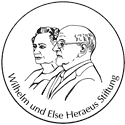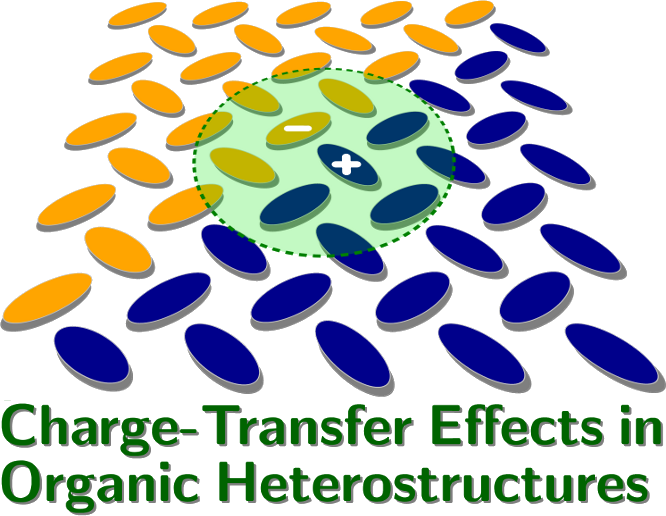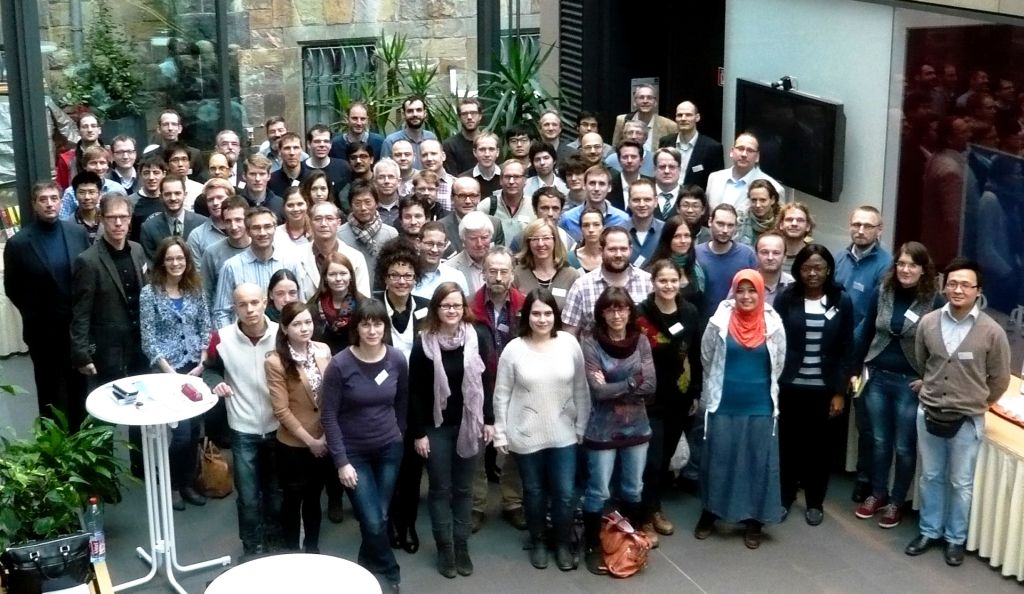578th WE Heraeus-Seminar
Charge-Transfer Effects in Organic Heterostructures:
Fundamentals and Applications

578th WE Heraeus-SeminarCharge-Transfer Effects in Organic Heterostructures:
|

|
|
Date: December 9-12, 2014 Venue: Physikzentrum Bad Honnef, Germany Application deadline: September 30, 2014 Scientific Organizers: Prof. Dr. Wolfgang Brütting (Universität Augsburg, Germany) Prof. Dr. Frank Schreiber (Universität Tübingen, Germany) |

|
This seminar, which will be generously funded by the Wilhelm and Else Heraeus Foundation, aims at bringing together experimentalists and theorists from different areas for a comprehensive discussion of this important topic. The format will consist of invited talks as well as a limited number of oral presentations of “hot topics” and poster presentations. Young academics are especially encouraged to participate and present their work. |
Charge transfer effects are ubiquitous in molecular materials. In fact, in many cases, charge transport, charge-driven interactions, and charge-related excitations - both in the bulk and at interfaces - are crucial for the specific features and functioning of the respective system. An important class of systems is that of donor/acceptor complexes, in which the charge transfer (CT) is a key point. Examples range from strong CT complexes forming charge transfer salts to weakly-coupled molecular blends. In many cases, however, the potentially subtle interactions and the degree of CT are not well understood.
Donor/acceptor complexes are central components in organic optoelectronic devices, such as organic light emitting diodes (OLEDs) and organic photovoltaics (OPV), where the energetics and the degree of CT are important. The performance of these systems is also strongly influenced by the structure formation and the degree of mixing (with phase separation and complex formation as the two opposite extremes), with the interfaces (thermodynamically stable or artificially structured) playing a key role. The structure formation is, in turn, determined by the nature of the interactions of the two ingredients. Overall, the understanding of CT effects is still not very mature. We expect that a coherent discussion of various aspects of CT helps to promote their understanding and more efficient application. Of course, an important ingredient in this area is also the continuous improvement of experimental and theoretical or simulation methods to study these effects. Issues to be addressed concern the spectroscopy of CT systems (i.e. ground state and excited states), possible time scales related to CT, electronic structure and charge transport, the relationship of CT with structural aspects, and consequences for applications in devices.
The seminar will be generously funded by the Wilhelm
and Else Heraeus Foundation. The foundation will cover expenses at the conference site (accommodation and full
board in the conference center) for all participants. This necessarily means that the total number of participants
is limited (to approximately 70). Therefore, everybody who is interested in participating is asked to send an
application to the
conference office.
Please use the provided application form
(pdf
/ word) and fill in your name, e-mail and
affiliation. Those who want to present a poster or give a oral contribution should also give the title and
abstract.

|